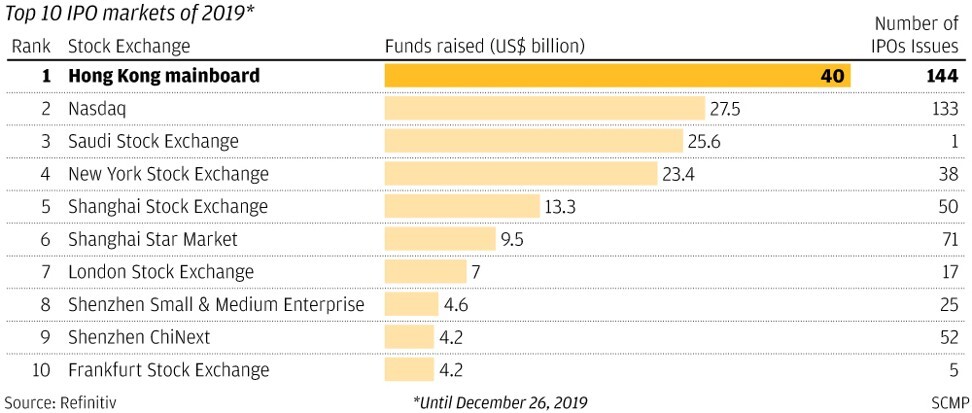
Nasdaq forms pact with Singapore Exchange to attract dual listings as Ant Group’s blockbuster IPO passes them by
- Singapore Exchange and Nasdaq will cooperate on a streamlined framework for issuers seeking a secondary listing on Singapore Exchange, SGX said
- The framework allows documents required for the SGX listing to be based on information contained in the US listing and subsequent filing documents to the SEC and/or Nasdaq, with additional disclosure in compliance with Singapore’s rules
Singapore Exchange and Nasdaq will extend their partnership to help companies access capital in both jurisdictions.
The framework allows documents required for the SGX listing to be based on information contained in the US listing and subsequent filing documents to the US Securities and Exchange Commission and/or Nasdaq, together with additional disclosure in compliance with Singapore’s rules. Shares of SGX fell as much as 1.7 per cent Wednesday morning, the most in three weeks.
“A dual-listing tie up with Nasdaq will significantly bring up SGX’s profile” as an important destination for technology listings in Asia, said Margaret Yang, a strategist at DailyFX in Singapore. “This is significant for SGX, which has suffered from delistings and lack of technology firm IPOs in the past years.”
Cooperation will further enable monitoring and assessment of issuers, and the enforcement of regulatory actions, including referrals of cases to the authorities of the respective jurisdictions.
It hasn’t stayed still – the bourse said last month it would launch single-stock futures on some companies listed in the city state, and announced it will acquire the remaining 80 per cent stake in BidFX, a foreign exchange trading platform.
“This is basically a step in corporate governance in line with the US Senate bill,” said Justin Tang, head of Asian research at United First Partners in Singapore. “Given the US is taking a view that Hong Kong is now China and special status does not hold, Singapore might be in good position to cement its status as a regional financial hub.”
Nirgunan Tiruchelvam at Tellimer also sees it as a positive for the Singapore bourse.
“This is a shot in the arm for the SGX,” he said. “It is an opportunity for the SGX to gain lost ground from a string of delistings. Singapore could become a magnet for high-profile listings as clouds darken over Hong Kong.”


